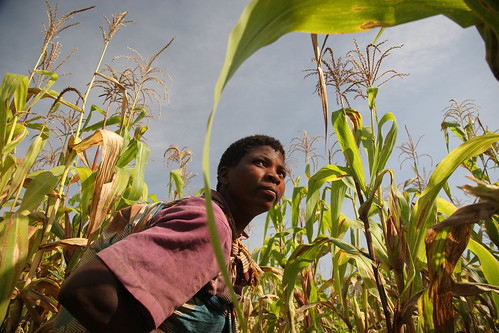Farmers, researchers, policymakers, academics and development partners are among some of the participants who will gather at the United Nations Conference Centre in Addis Ababa, Ethiopia on 1-3 November 2011 for an international conference under the theme, Increasing agricultural productivity and enhancing food security in Africa: New challenges and opportunities.
The conference is organized by the International Food Policy Research Institute (IFPRI), in conjunction with the African Union Commission, the Forum for Agricultural Research in Africa (FARA) and the United Nations Economic Commission for Africa (UNECA) and will feature plenary and parallel sessions, discussions of conference papers, and moderated panel discussions of specific issues.
Scientists from the Market Opportunities theme of the International Livestock Research Institute (ILRI) are scheduled to present two papers during the parallel session on 'Appropriate capacities, investments, institutions and policies for supporting agriculture'.
Ayele Gelan will present a paper titled, Integrating livestock in the CAADP framework: policy analysis using a dynamic computable general equilibrium model for Ethiopia and Francis Wanyoike will present on Pro-poor livestock development: analysis of performance of projects and lessons.
To find out more about the conference, please visit http://addis2011.ifpri.info
The conference is organized by the International Food Policy Research Institute (IFPRI), in conjunction with the African Union Commission, the Forum for Agricultural Research in Africa (FARA) and the United Nations Economic Commission for Africa (UNECA) and will feature plenary and parallel sessions, discussions of conference papers, and moderated panel discussions of specific issues.
Scientists from the Market Opportunities theme of the International Livestock Research Institute (ILRI) are scheduled to present two papers during the parallel session on 'Appropriate capacities, investments, institutions and policies for supporting agriculture'.
Ayele Gelan will present a paper titled, Integrating livestock in the CAADP framework: policy analysis using a dynamic computable general equilibrium model for Ethiopia and Francis Wanyoike will present on Pro-poor livestock development: analysis of performance of projects and lessons.
To find out more about the conference, please visit http://addis2011.ifpri.info




